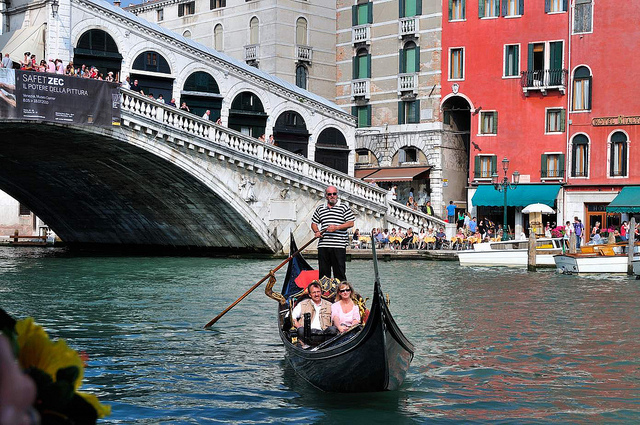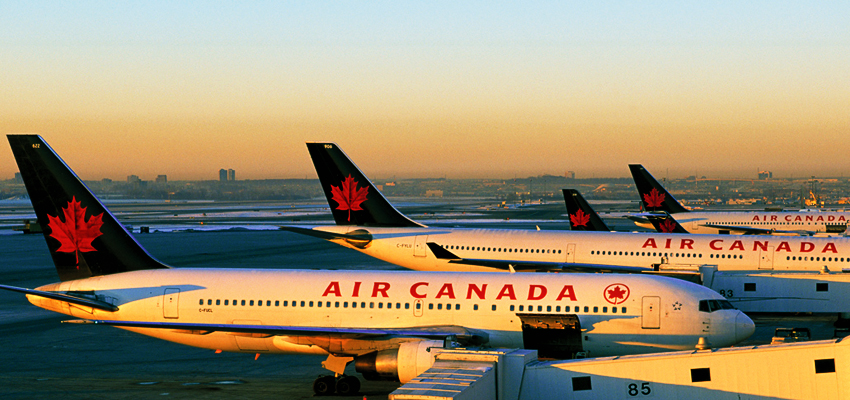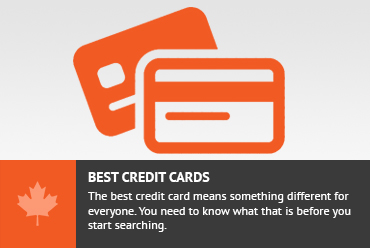Travel planning varies dramatically depending on the traveller. If you’re planning a finite trip or vacation, it’s often necessary to get the most out of your time abroad. Long-term travellers can’t possibly plan every part of their trip, and some would say that too much travel planning can actually be more of a detriment. So….how much travel planning should you do before you arrive to a new destination?
Dear Nora,
How much travel planning do you do? I don’t want to plan too much in case I discover something cool along the way, but I also want to make sure I know the good stuff to see and do, and that I don’t get ripped off because I don’t know enough. I have no idea where to start, or what I should plan in advance. What do you do? – Kelsey
Great questions, Kelsey! Personally, I don’t particularly enjoy the travel planning process, so I tend to err on the side of winging it. But as a full-time (and slow) traveller, I have the luxury of time on my side, to discover my destination more organically. It’s also a lot of work to plan out trips, and work-life balance on the road is a delicate dance between spending time on my computer and getting out of the house (so to speak).
Having said that, I always have my accommodation booked in advance (often in the form of a house-sitting or volunteering opportunity), and I research how to get from the airport to where I’m going in the most economical/convenient way, along with some general information about my destination’s language, culture, and entry requirements.
When I was living in Peru, I met a girl who was travelling through on a three-month trip around South America. She had meticulously planned every aspect of her trip, practically down to the minute. She was about halfway through her trip when I met her, and she was not only exhausted from the pace of travel she had planned out, but she also fell in love with Peru and wanted to stay longer, spend time with new friends, and explore some recommendations fellow travellers had given her along the way. Unfortunately she couldn’t, because she had a tour booked in Bolivia and had to keep moving.
I’m sure she returned from her trip with an arsenal of amazing experiences under her belt, along with some places she might plan to return to and spend some more time on another trip. I just hope she wasn’t too overwhelmed and tired from her three-month whirlwind.
There is no right or wrong answer as to how much travel planning you should do, what you should plan, or what resources to use. So, I’ve interviewed a panel of travel experts (some long-term travellers, others who take shorter trips) to find out what their strategies and tips are.
SUSAN RIPLEY
A travel planner at heart, learning to let go a little and ask questions on the ground
In 2015, Susan of Brooklyn Tropicali left her job as a fashion designer, she and her husband threw a few things in storage, and they’ve been travelling Latin America ever since. After moving quickly for a few months through Colombia, Ecuador, and central Mexico, they’ve been house-sitting non-stop since then.
Strategy
Susan loves to plan, and thought travel planning for others could be a viable source of income on the road. (See also: 11 Ways to Earn Money While Travelling the World)
“When I was stuck in my 8-6 day job, feeling exhausted and uninspired, I would come home at night and just research and plan trips – even if I didn’t have immediate plans to go anywhere! Travel planning was an outlet for me to daydream about travel, and teach myself how to find the most obscure and off-the-beaten path info.”
“Ironically, now that we’re travelling full-time, I do much less planning for our personal trips. I think that’s par for the course though; it’s impossible to extensively plan every detail when you are frequently moving from one place to another. So I’ve had to learn to let go a little, ask questions on the ground, do short bouts of research, and sometimes just let ourselves stumble into new situations. It’s a completely different experience and has taught me a lot!”
What Susan Plans in Advance
Susan always books her accommodation in advance, but usually no more than a month out. “I’ve been working with some hotels lately for my blog, so those arrangements I’ll usually make a month or so out. Our itineraries have been more specific over the last few months, especially since we are often making our way between housesits.”
For transportation, Susan researches only their initial needs, such as getting to where they’re going from the airport/bus station. As for restaurants and activities, she’ll do a little research in advance, but doesn’t stress if she’s short on time.
“We were just in Tulum for three days before heading to a housesit. We were super busy before we got there, so I did almost no planning. We had our hotel booked (I had arrangements to work with them), but I waited to get there to do some research for what to eat and what to do. This ended up being a great choice, because the hotel staff was so amazing and helpful with recommendations. They sat us down with a map and told us every restaurant we should try, and all the best local sites. They saved me so much time!”
Susan’s Travel Planning Tools
Susan creates customized trips for burned-out professionals short on vacation time. As such, she has a mini arsenal of travel planning tools at her disposal:
Organization – Google Docs: “I create a fresh google doc for each trip – divided chronologically into destinations, with headings for “Accommodation”, “Eat”, “Drink”, and “Do”. And then “Transportation” detail sections between each destination.”
Organization – Google My Maps: “I create a customized “My Map” for each destination. I add all restaurants, hotels, museums, etc from my research and colour code each type of place (example: all restaurants green, all museums purple). This way I can open it on my Google Maps app on my phone while on the go and see what’s around me, and how I can plan my route that day logistically. This is especially important in huge cities like Mexico City! Lets you see everything efficiently.”
Research – Wikitravel, Lonely Planet, Travel Blogs: “I like to start by looking at sites like Wikitravel and Lonely Planet for brief overviews on the region. Then I find travel blogs with specific posts on my destination. I find the recommendations to be more personal and reliable.”
Flights – ITA Matrix, Kayak, Google Flights: “I like ITA Matrix to get a month overview of flight prices with varied lengths of the trip as a starting point. I’ll also check Kayak and Google Flights to compare.”
Frequent Flyer Mile Research – Extra Pack of Peanuts, The Points Guy, Million Mile Secrets
Accommodation – House-sitting Resources: “We’re huge on house-sitting these days, so I’m constantly connected to sites like TrustedHousesitters, MindmyHouse, HouseCarers and Nomador.” (See also: 19 Cautionary Tales about House-Sitting)
Accommodation – Booking.com, TripAdvisor: “I use Booking.com for access to tons of pictures of each hotel, hostel or guesthouse I’m interested in. Then I check Tripadvisor reviews before booking a hotel. I usually like to book directly with a hotel via their own website.”
ANNE BETTS
Over prepare, then go with the flow
Anne is a dedicated carry-on traveller who blogs at Packing Light Travel, a site that helps travellers refine the art of packing light. With a lifetime of travel experience under her belt, Anne takes 5-6 trips per year.
Strategy
“I tend to fall into the ‘over prepare, then go with the flow’ camp,” says Anne. The research process helps her figure out how long to stay in a place, refine her packing list, and build anticipation as well as confidence in being able to get around. “There are no critical surprises (e.g., entry requirements, vaccinations…), and it makes good financial sense (e.g., identifying discount or free admission days, best accommodation rates, transit passes). I don’t want to spend time at my destination doing research (with the exception of conversations with locals and other travellers).”
Not only that, but Anne’s research also helps with blogging and social media postings, since notes on a specific experience can readily convert to a post. And she can help others with their travel planning as well: “When others ask for recommendations, I send them my travel planner. It’s efficient, and builds community.”
What Anne Plans in Advance
Anne typically travels for up to a month at a time, and books all her accommodation and most transportation in advance. She knows how to get from the airport to where she’s going using public transportation, and has a long list of possible activities at hand, with opening times and costs. “I have a tentative itinerary, listing advance bookings or activities only available on specific days. There’s lots of space to insert activities according to energy levels, weather and spontaneity.”
Anne’s Travel Planning Tools
Organization – Word, Dropbox: “Research is typically recorded as a Word document for circulation to travel mates (if I’m not travelling solo), and stored in Dropbox for reference.”
Research – Travel Advisories, Government Sites, Google, WikiTravel, Travel Guides: Anne’s usual starting points are the British and Canadian government sites for travel advisories. For entry requirements, she uses the government sites of the passport she’s using, and the country she’s visiting. For health, she checks the Canadian government site and CDC.
Then, it’s on to general research; “WikiTravel usually produces a good overview. I’ll Google search criteria reflecting my interests (e.g., exploring a place by bike, getting off the beaten path, food tours, experiences designed by locals). I’ll also look for meaty posts written by bloggers. If Google becomes too time consuming or doesn’t produce content of any breadth or depth, I’ll purchase a travel guide in Kindle format – usually Rick Steves or Lonely Planet.”
Flights – SeatGuru: Anne says SeatGuru (which allows you to see the layout of your plane so you can choose an optimal seat) is a must for long-haul flights.
TIFFANY SOUKUP
Get a big picture, and eliminate stress by booking the basics
For over a decade, Tiffany Soukup of Vagabond Way has been moving and working around with the world with her husband Chris. Currently they are travelling for an indefinite amount of time around Southeast Asia.
Strategy
“We do enough research to give ourselves some big picture parameters. For instance right now we’re travelling in Southeast Asia and we know we want to be north of mainland Malaysia no later than October to keep on track with the seasons we want to be travelling in. Unless there is something specific we want to do in high season, we don’t book too much of anything far in advance.”
Tiffany strikes a balance between mitigating certain travel stressors while allowing for opportunities to change their plans. “I so dislike spending an hour walking around to look for accommodations, so we book ahead for a night or two. Then if we like a place we can stay longer, and if we don’t, we’ll just move on. For us, time saved is stress saved too!”
What Tiffany Plans in Advance
“We’ve never saved money or made great choices just winging it at the airport. One of our rules after big international flights is we always know how we’re getting from the airport and we book a place that received good reviews for our first two nights. TIP: If there’s an airport shuttle but our flight arrives late at night, we always check if the shuttle will still be running so there’s no unpleasant surprises or expensive taxi rides.”
Tiffany’s Travel Planning Tools
Research – Guidebooks, Google, Conversations: “We use guide books such as Lonely Planet to get a broad overview of an area we want to go to, but they are not nearly specific enough for the types of experiences we are trying to have. Usually what is the most helpful for us is a Google search that brings up blogs that have better firsthand accounts. Also, we ask everyone, locals and travellers alike, for advice and that is where we get the best information.”
Accommodation – Agoda: “Often we will just use sites like Agoda and book our accommodation a day or two before we will arrive.”
CHRIS OLDFIELD
Depends entirely on the length of the trip
Chris is an ethical budget travel blogger from Canada, compiling his travel tips and calamitous tales at Lessons Learned Abroad. After 10 years of off-and-on travel, he has been to around 30 countries, and currently calls Sweden home.
Strategy
The amount of travel planning Chris does depends on the length of the trip. “The less time you have, the more efficient you need to be with your time. When you have a longer period of time for your trip, every detail becomes less significant. You can take days off to relax, you can change your plans as you go. Every trip I go on I always come across new information – often from other travellers – that leads me to change my plans. If I had every single detail already booked, this would be a problem. Therefore I try to be as flexible as possible.”
Chris cites some of his most enjoyable trips as those where he hasn’t planned at all. “It takes some courage, but without any expectations you are free to view the country without a filter. It leads to more surprise and confusion and mystery – all of which I found interesting additions to the experience. I’ll definitely be doing this more in the future!”
What Chris Plans in Advance
“For shorter trips (say one or two weeks) I’ll plan out most days. I’ll leave in time for travel and for relaxing, but on a shorter trip you generally want to maximize your time. For longer trips, I’ll just plan out the highlights, book my first few days, and then see what happens.”
Chris’s Travel Planning Tools
Research – Blogs, Guidebooks, Facebook: “I generally stick to blogs. They offer up the most up-to-date information, though I might check a guidebook if it’s going to be a longer trip. I also reach out on Facebook to see if any friends (or friends of friends) can help me with travel tips or insights.”
STEPHEN SCHRECK
Have a rough outline….at most
Stephen Schreck is a travel addict, who has been on the road for over four years writing about his adventures at A Backpackers Tale.
Strategy
“I’m the type of person that thrives on random experiences and adventure. I need the freedom to wake up every day and be able to change plans. I live on the road so it always keeps things fresh and exciting. Sometimes you talk to people and discover really cool things you didn’t know about. This also gives me the freedom to stop and stay in a place for a while when I like.”
What Stephen Plans in Advance
Stephen started out not planning anything. “I’d have a list of things I wanted to do in a country. I would land in the airport with no phone, no idea and no idea where I was going to stay. It was wonderful, and that kind of travel leads to a lot of adventures.” Now that travel is a career, he carries a lot more expensive gear, and prefers to book his accommodation at least a few days in advance. “I always have a rough outline, and a rough plan of what I want to see and do.”
Stephen’s Travel Planning Tools
Research – Blogs, Conversations With Other Travellers, Social Media
Flights – Skyscanner, Secret Flying
ANDREW MCGUIRE
Planning is part of why he travels
Over the past 30+ years, Andrew has travelled to 20+ countries and almost every state in the U.S. He travels at least once per year overseas even though he is very busy with a full-time job. His passion is luggage, and his website Backpack Boss helps people find the right travel luggage with reviews, stories, bloopers, and adventures.
Strategy
Andrew spends between 3-20 hours planning his trips; more if he’s visiting multiple locations. “The planning period and anticipation of travelling to that new destination is a large part of why I travel. Getting to know the culture, people, food, language, transportation options, activities and historical sites is very exciting for me. It makes me feel like I understand their culture and I get more excited about where I’m heading next.”
What Andrew Plans in Advance
Although in the past Andrew enjoyed “winging it” by simply picking a destination and going, with a young child now, he likes to plan his trips more than before. So he tends to book one thing per day as the main event, which still leaves his itinerary open for last-minute adventures.
He always books his accommodation in advance, as well as his transportation from the airport to where he’s staying. “Every time I try and wing it, somehow I end up getting stuck and it takes hours for me to get to where I need to go. I highly recommend at least booking a service to get you from the airport to your location – it might be a bit more expensive but it’s worth lower stress for it.”
Andrew’s Travel Planning Tools
Research – TripAdvisor, Nomadic Matt, Eating The Globe, Bookstores
Accommodation/Transportation – AirBnB: “If I’m travelling outside the U.S., I’ll typically ask a few questions to the owner in English to see what type of response I get. If they can understand my questions and respond clearly, I have a winner. I usually ask the AirBnB owner for recommendations on how to get from the airport to their property, and I book a taxi / car service before arriving.”
After compiling these interviews, I was somewhat embarrassed to realize I had never used WikiTravel – which I subsequently discovered is a great resource for getting a general overview of a place as well as accommodation/activity recommendations. This has now become one of the first places I look when I’m planning my next destination.
And, although none of the travellers above mentioned it, I’m sure they all did one more thing as part of their travel planning process: they got insurance. (See also: The Ultimate Guide to Travel Insurance for Canadians)
How much travel planning do you do?
travel planning, travel research










Hi Nora – interesting read! Certainly some common threads there when it comes to locking down the big ticket items in advance.
I can relate to Anne’s “over prepare, then go with the flow” philosophy, that seems to be where I’ve found my planning sweet spot. I also like that Susan treats planning as a hobbie and escape in itself. Similarly, I find planning my next trip is a great way to defy the post-travel blues!
Hi Zoe,
Glad you enjoyed reading these different perspectives! I think I fall somewhere in the middle; I don’t totally wing it on arrival, but I don’t spend a heap of time preparing either. But I totally understand how the planning and anticipation is a great part of the trip itself for many people!